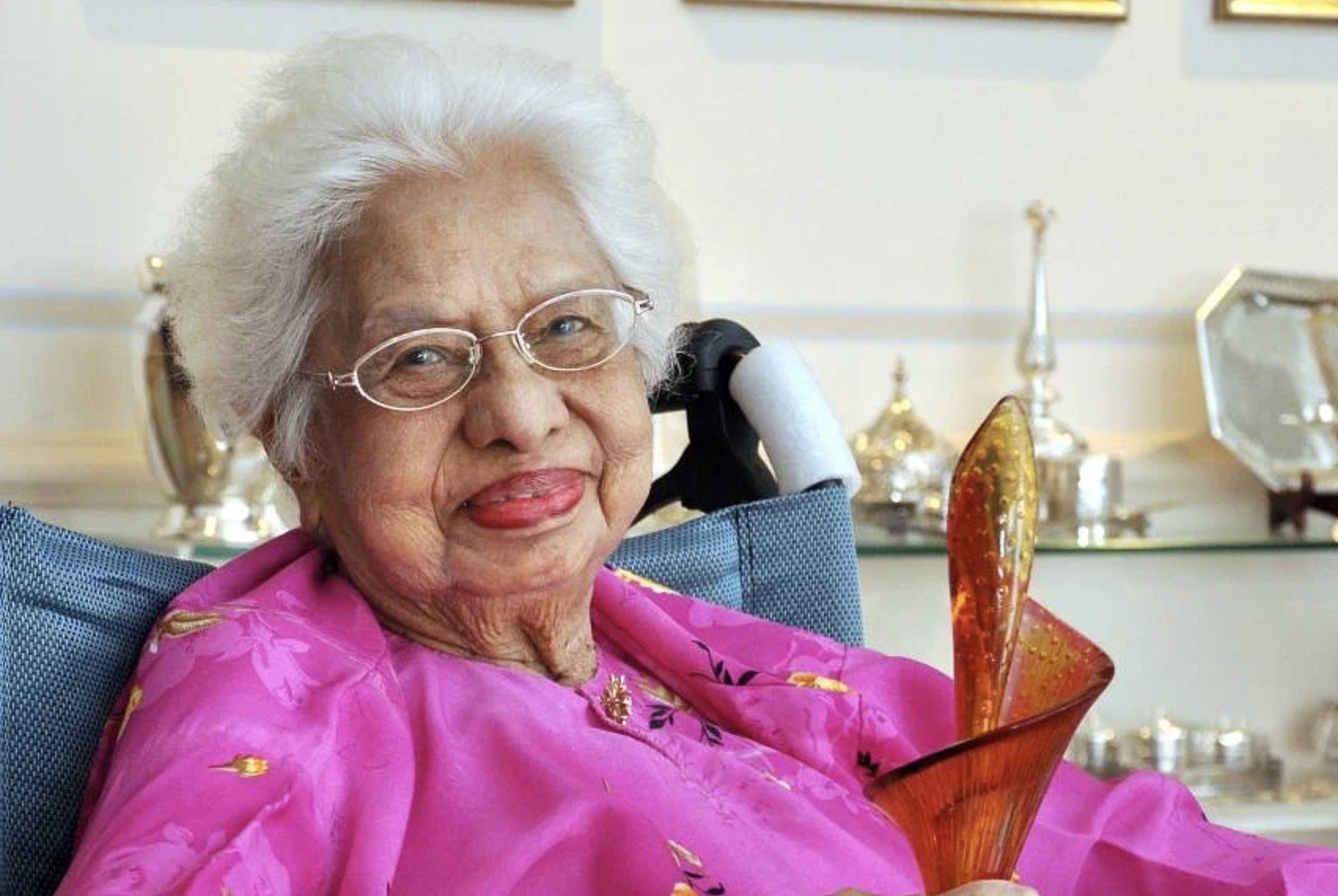Home > News & Media > Pioneer Muslim women’s rights activist Khatijun Nissa Siraj dies at 97
Pioneer Muslim women’s rights activist Khatijun Nissa Siraj dies at 97

This article was originally published by The Straits Times on 08 March, 2023.
SINGAPORE – Pioneer Muslim women’s rights activist Khatijun Nissa Siraj, who was also a Singapore Women’s Hall of Fame inductee, died on Tuesday. She was 97.
She co-founded the non-profit organisations Singapore Muslim Women’s Association (PPIS) and Muslim Women’s Welfare Council, and was the first woman counsellor at the Syariah Court.
Speaking to The Straits Times, her daughter Zaibun Siraj said her mother died on Tuesday night after struggling with health issues since November 2022.
Her voice cracked with emotion as she said: “She’s helped so many people and contributed so much to Singapore society.
“If her body is tired, then I guess we should let her go. It’s not easy, but we are all trying.”
The 75-year-old recalled that as a child, the phone would constantly ring at home because people would call at “all hours of the day and night” to seek advice from Mrs Siraj about family problems, even after she had retired.
“I think I might have been a little upset that so many people kept knocking on the door,” said Ms Zaibun, adding that she was always very proud of her mother.
She said her mother would go out of her way to help people. For example, when she realised that some women who came to her office could afford to feed their babies only tea, she got donations of baby formula for them.
Following in their mother’s footsteps, Ms Zaibun and her sister Mehrun became involved in feminist and human rights advocacy.
She said her mother was a role model who taught them to find time for others, speak up, and fight for issues.
“She wasn’t afraid to raise issues and request changes that would improve the lives not just of women but also of men and children in Singapore.”
Between 1950 and 1958, nearly half of all Muslim marriages here ended in divorce. Muslim men could divorce their wives by simply verbalising their decision to do so and paying an alimony of $30 for just three months even if the couple had children, leaving the women with no recourse or protection.
In 2021, Mrs Siraj, who was affectionately known as “Mummy”, told ST: “If I didn’t help my own people, who would have?
“It was my foremost duty to ensure their well-being. It was upsetting to see women treated with little dignity and respect.”
Together with 21 other women in 1952, she founded PPIS, then known as the Young Women’s Muslim Association, which aimed to give Muslim women an avenue to seek legal and medical advice.
Mrs Siraj was quoted as saying in the Singapore Memory Project: “Women then were afraid of their husbands, and some were told by their husbands that if they joined us, they would divorce them.”
Still, some of the women said they would continue fighting, even if they were thrown out of their homes, she added.
In a tribute on Facebook on Wednesday, PPIS said Mrs Siraj and other founding members of the organisation paved the way for providing protection and representation for Muslim women in Singapore.
“Mummy has touched the lives of many and will be remembered for her unwavering commitment to advocating for Muslim women’s rights,” the association said.
In a statement on Wednesday, PPIS president Hazlina Abdul Halim called Mrs Siraj a “visionary trailblazer” who was exemplary in her unwavering commitment and dedication to championing women.
In 1958, the association’s efforts paid off when the Government set up the Syariah Court to reform legislation on marriage and family matters, including divorce and polygamy laws.
The daughter of a wealthy businessman, Mrs Siraj did not need to work, but she applied to be a Syariah Court counsellor because she wanted to bring about real change.
Mrs Siraj, whose pre-university studies were interrupted by the Japanese Occupation in 1942, became the court’s first woman counsellor in 1960.
She dealt with hundreds of cases, and her exposure to clients’ issues led her to start the Muslim Women’s Welfare Council in 1964.
Even after the laws were changed, many women here were not educated, and their parents and husbands would keep them at home, so the council focused on providing charity, welfare, legal and medical advice to Muslim women.
Said Mrs Siraj in the Singapore Memory Project: “The thing that kept me going was the desire to help those unfortunate people. There were so many unfortunate women and children, and also unfortunate men as well.
“I felt that I had to help in whatever way I could.”
After she left the Syariah Court in 1970, Mrs Siraj joined the then Social Welfare Department, where she handled cases involving adolescent Muslim girls who had behaviour and conflict problems, and counselled them and their family members.
She later served with the Singapore Council of Social Services, conducting interviews with the elderly and the poor who needed social assistance and more.
Between 1960 and 1971, divorce rates in the Muslim community here dropped significantly to an annual average of 18.5 per cent.
To celebrate her achievements, Mrs Siraj was inducted into the Singapore Women’s Hall of Fame in 2014.
Ms Zaibun said: “She impressed upon us that the position of women in a nation is the best criterion of progress, civilization and culture.
“It is good for everyone, she would tell us, that women are respected and not discriminated against.”
Mrs Siraj leaves three children and six grandchildren.
She was buried at Choa Chu Kang Muslim Cemetery around noon on Wednesday.

